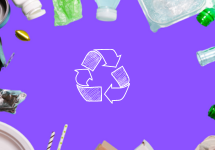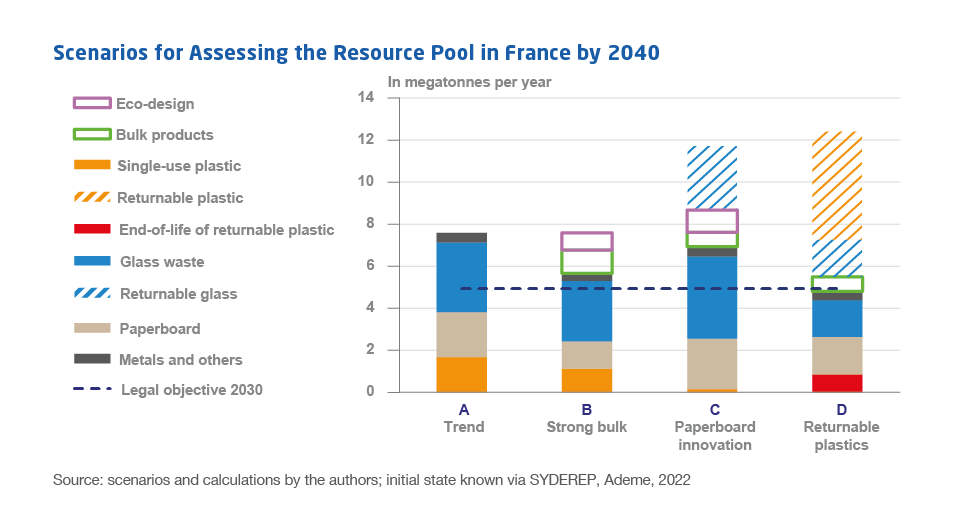
Through several scenarios, the difficulty of moving away from single-use plastics while reducing the tonnage of packaging to be manufactured is highlighted – knowing that this criterion excludes a massive shift towards single-use glass. Ultimately, this equation could involve returnable plastic packaging, which would imply significant behavioral changes (scenario D in the figure below), or the development of innovative paper and cardboard alternatives replacing plastics – a currently speculative hypothesis (scenario C).
In any case, the production of household packaging and their sorting and recycling once they become waste (or their return, if they are made returnable) form two sides of the same industrial system, whose many playors often make heavy investments. This system will face rapid changes, and not all the uncertainties, compounded by the potential for technical or social innovation, can be resolved in advance.
This raises the question of putting the extended producer responsibility (EPR) system for household packaging directly in charge of organizing the industrial sorting of "yellow bins" (recyclables), instead of merely funding municipalities for this task. Concurrently, financial support from producers to municipalities for yellow bin collection could be increased to cover 100% of the costs of an "optimized service", instead of the current 80%.
This would require organizing the transfer of sorting facilities, where municipalities have invested themselves, and ensuring the market power of the Producers responsibility organization(s) (PRO) vis-à-vis private waste operators is limited. Competition between PROs remains largely theoretical today. It could be chosen to develop it, or conversely, to accept its absence, in which case the regulation and governance of the PRO should be adapted accordingly. In any case, the expansion of the PROs' prerogatives must be matched by a strengthening of their currently insufficient control.

Read the full document in french






